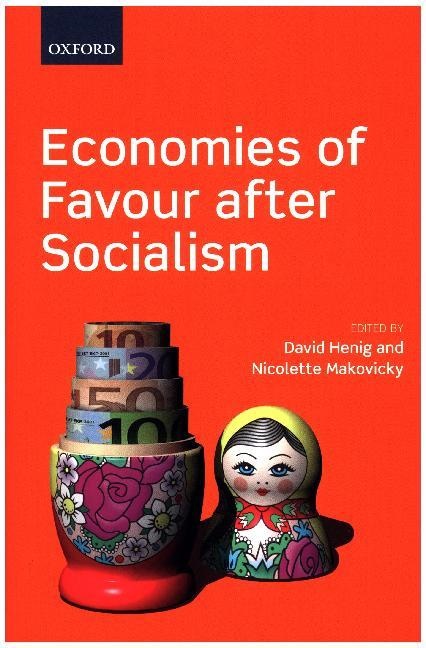Ulteriori informazioni
Zusatztext Casting a bright, new light on favours in the economy, the authors show that favours are embedded in moral and ethical ideals even when they subvert authorized practices.Neither purely instrumental nor mutual acts, neither reciprocity nor contract, favours are anomalous practices in formal economics just as they can be ambiguously interpreted in everyday life. The essays display how productive this ambiguity can be for a flourishing material existence. Informationen zum Autor Nicolette Makovicky is Lecturer of Russian and East European Studies at the University of Oxford. She is the editor of Neoliberalism, Personhood, Postsocialism: Enterprising Selves in Changing Economies (Ashgate, 2014) and has published extensively on informal economic activity in Central Europe. David Henig is Lecturer in Social Anthropology at the School of Anthropology and Conservation, University of Kent. His research, conducted mainly in the Balkans and Central Asia, focuses largely on vernacular Islam, sacred landscape, exchange theory, and more recently on linking anthropology with global transnational history, diplomacy, international relations, and geopolitics. He has authored numerous publications on Islam, dervish orders, Muslim politics, and post-socialism. Klappentext A volume on the economics of favours and how they function as socially efficacious actions in post-socialist regions including central, eastern, and south eastern Europe; the former Soviet Union; Mongolia; and post-Maoist China. Zusammenfassung A volume on the economics of favours and how they function as socially efficacious actions in post-socialist regions including central, eastern, and south eastern Europe; the former Soviet Union; Mongolia; and post-Maoist China. Inhaltsverzeichnis 1: Nicolette Makovicky and David Henig: Introduction: Re-imagining Economies after Socialism: Ethics, Favours, and Moral Sentiments 2: Alena Ledeneva: The Ambivalence of Favour: Paradoxes of Russia's Economy of Favours 3: Caroline Humphrey: A New Look at Favours: The Case of Post-Socialist Higher Education 4: Madeleine Reeves: Giving, Taking, and Getting By: Help and Indifference in Moscow's Temporary Housing Market 5: Katherine Swancutt: The Anti-Favour: Ideasthesia, Aesthetics, and Obligation in Southwest China 6: Chris Hann: The Human Economy of Pálinka in Hungary: A Case Study in Longue Durée Lubrication 7: Deema Kaneff: Making History, Making Politics: Post-Socialist Elite Economies of Favour in Bulgaria and the Ukraine 8: Tomasz Rakowski: Interior Spectacles: The Art of the Informal among the Former Miners in Wäbrzych, Poland 9: David Henig: A Good Deed is not a Crime: Moral Cosmologies of Favours in Muslim Bosnia 10: Nicolette Makovicky: The 'Shadows' of Informality in Rural Poland 11: Martin Holbraad: Afterword: The Social Warmth of Paradox ...
Sommario
- 1: Nicolette Makovicky and David Henig: Introduction: Re-imagining Economies after Socialism: Ethics, Favours, and Moral Sentiments
- 2: Alena Ledeneva: The Ambivalence of Favour: Paradoxes of Russia's Economy of Favours
- 3: Caroline Humphrey: A New Look at Favours: The Case of Post-Socialist Higher Education
- 4: Madeleine Reeves: Giving, Taking, and Getting By: Help and Indifference in Moscow's Temporary Housing Market
- 5: Katherine Swancutt: The Anti-Favour: Ideasthesia, Aesthetics, and Obligation in Southwest China
- 6: Chris Hann: The Human Economy of Pálinka in Hungary: A Case Study in Longue Durée Lubrication
- 7: Deema Kaneff: Making History, Making Politics: Post-Socialist Elite Economies of Favour in Bulgaria and the Ukraine
- 8: Tomasz Rakowski: Interior Spectacles: The Art of the Informal among the Former Miners in Walbrzych, Poland
- 9: David Henig: A Good Deed is not a Crime: Moral Cosmologies of Favours in Muslim Bosnia
- 10: Nicolette Makovicky: The 'Shadows' of Informality in Rural Poland
- 11: Martin Holbraad: Afterword: The Social Warmth of Paradox
Relazione
,,,innovative and inspiring Matías Dewey, Max Planck Institute for the Study of Societies, the european electronic newsletter

